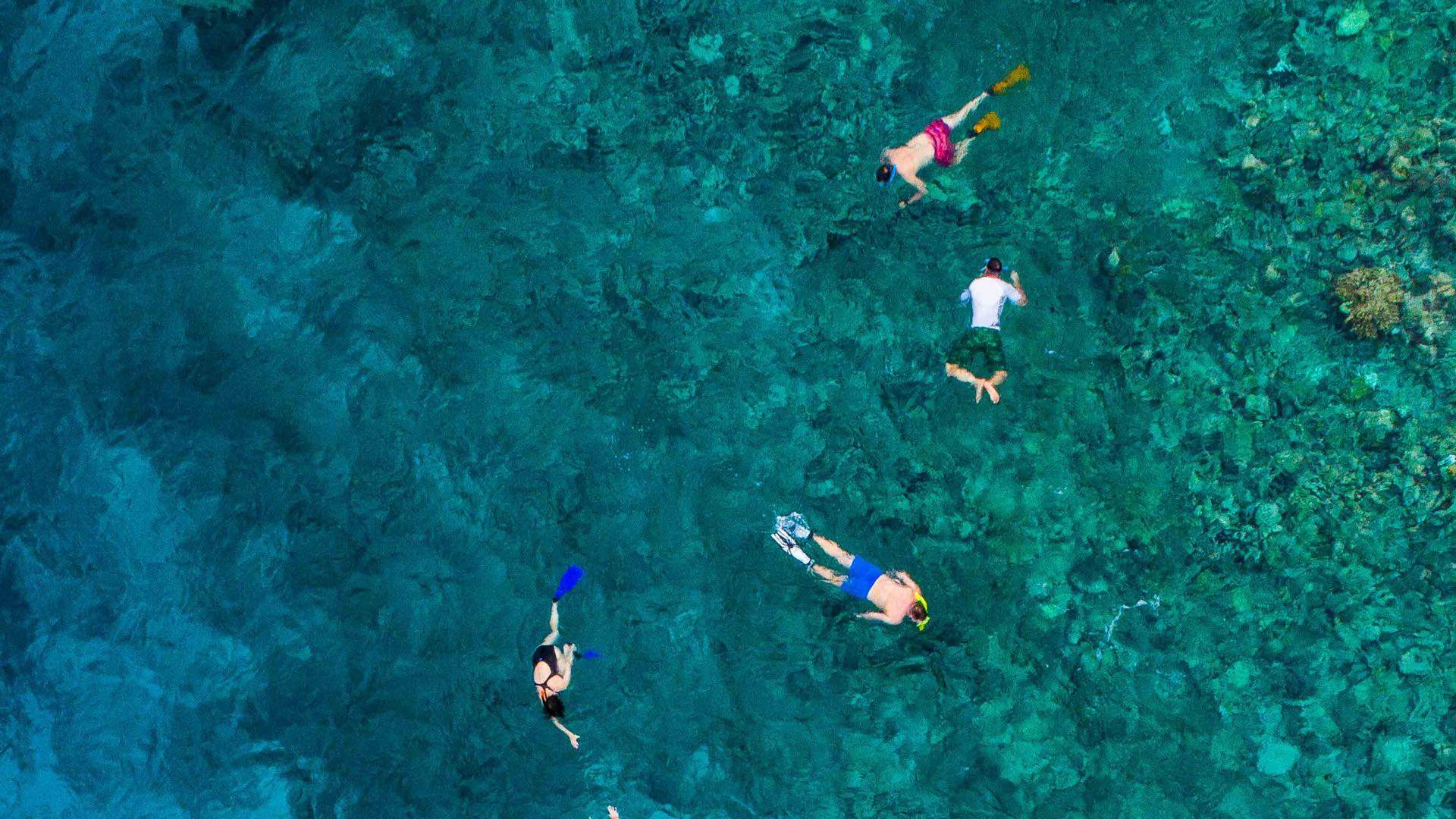Thirteen of the Best Snorkelling Spots in Sydney You Should Bookmark for Summer
Escape your landlubbing worries under the sea.
In the words of The Little Mermaid, "it's better, down where it's wetter". For a city that's oft-accused of being surface-heavy, Sydney has a lot going on beneath. More than 500 species roam the harbour and surrounds — from flamboyant weedy sea dragons to green turtles and (thankfully) blunt-headed Port Jackson sharks.
So, when the hectic pace of life on top gets you down, don your flippers and head underwater at one of the best Sydney snorkelling spots, where time slows to a delightfully dreamy tempo.
Here are 13 of the most lively, colourful and intricate snorkelling spots around Sydney, from the crystalline waters of Little Bay to the rocky outcrops of Manly's Cabbage Tree Bay and the surreal seagrass beds of The Basin, Pittwater.

Recommended reads:
The Best Ocean Pools in Sydney
The Best Waterfalls to Swim Under Near Sydney
The Best Beaches in Sydney
The Best Rivers to Swim in Near Sydney

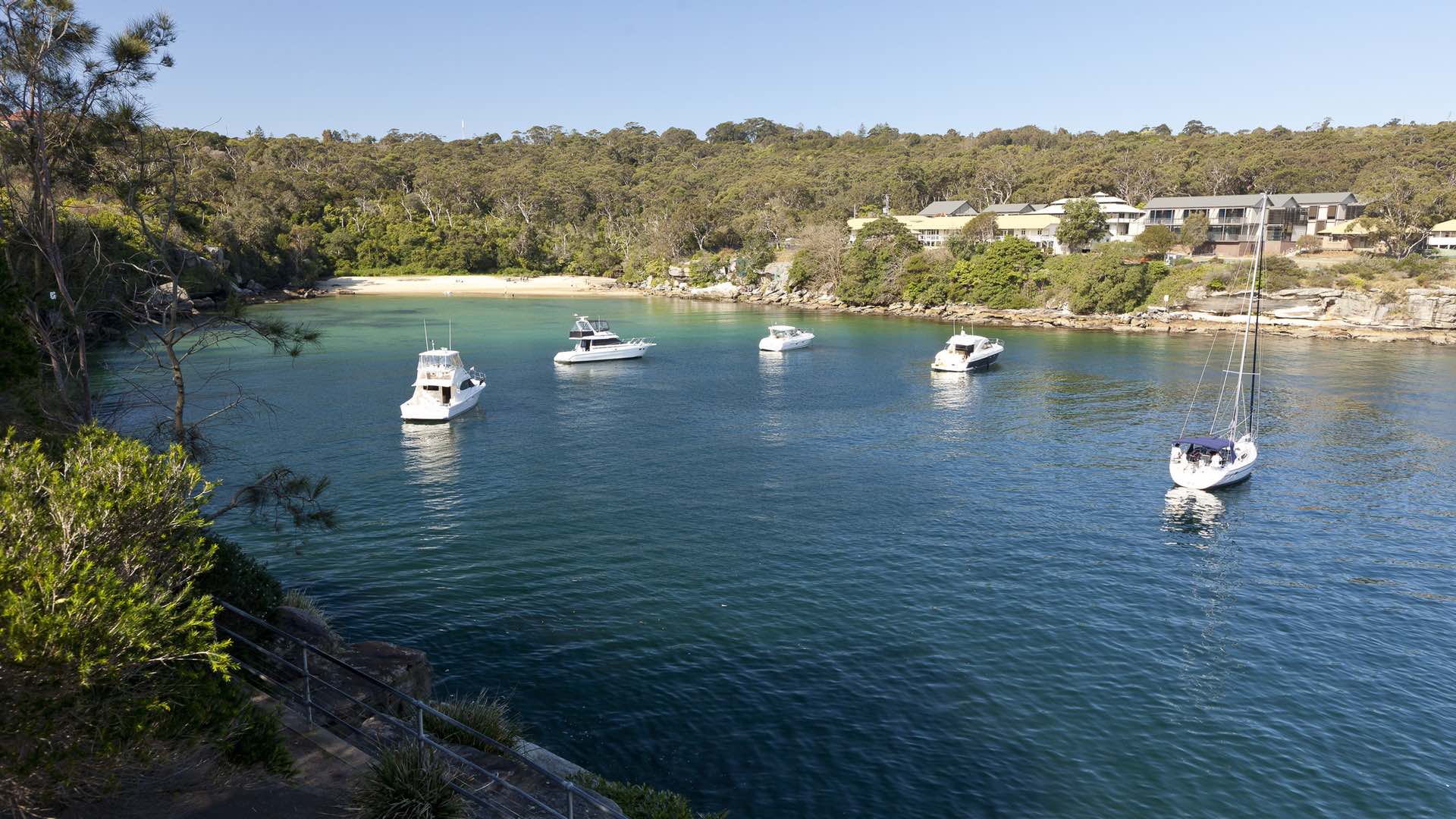
Destination NSW
LITTLE MANLY COVE
Little Manly Cove is made for slow, gentle, relaxing snorkelling. Your best bet is to start on the outside of the swimming enclosure's western wall and follow it all the way around to the rocks on the eastern side. Stick alongside them until you hit the point before heading back. If you're keen for further adventure, Collins Flat and Store Beaches are short strolls away. This is also one of our favourite spots for kayaking near Sydney.

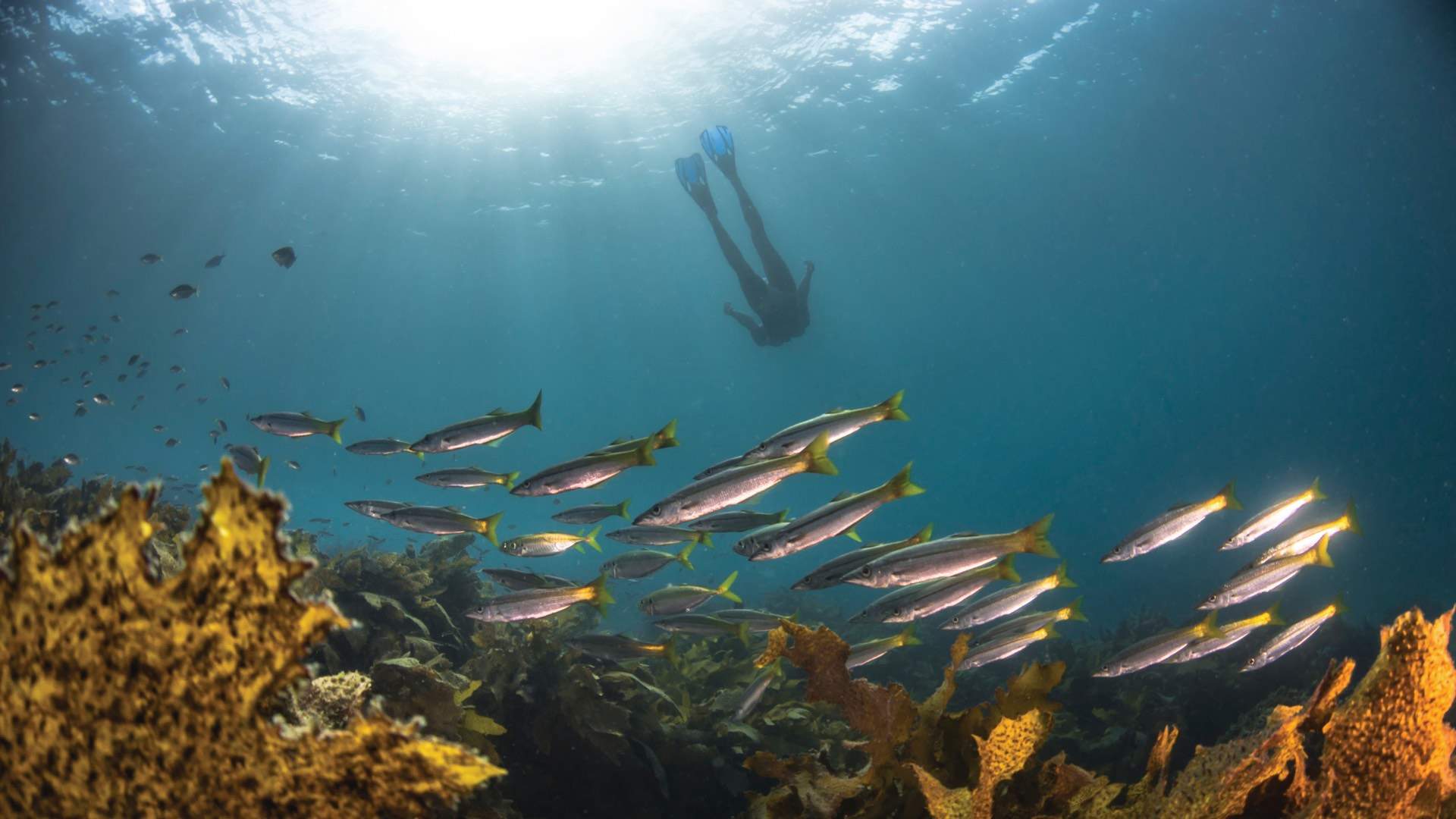
Destination NSW
CABBAGE TREE BAY
Like the Bronte-Coogee stretch, Cabbage Tree Bay is in an aquatic reserve. It comprises 20 hectares, between Manly Beach's southern end and the northern tip of Shelly Beach Headland. Most of the time, visibility is extraordinarily good and the diversity of critters Great Barrier-level impressive. The most convenient place to begin is Shelly Beach. Follow the reef along the headland or jump in at the boat ramp and swim alongside the walkway. Prepare to meet flounder, flathead, goatfish, old wives, fiddler rays and sharks — namely Port Jacksons, wobbegongs and, between January and June, young dusky whalers.

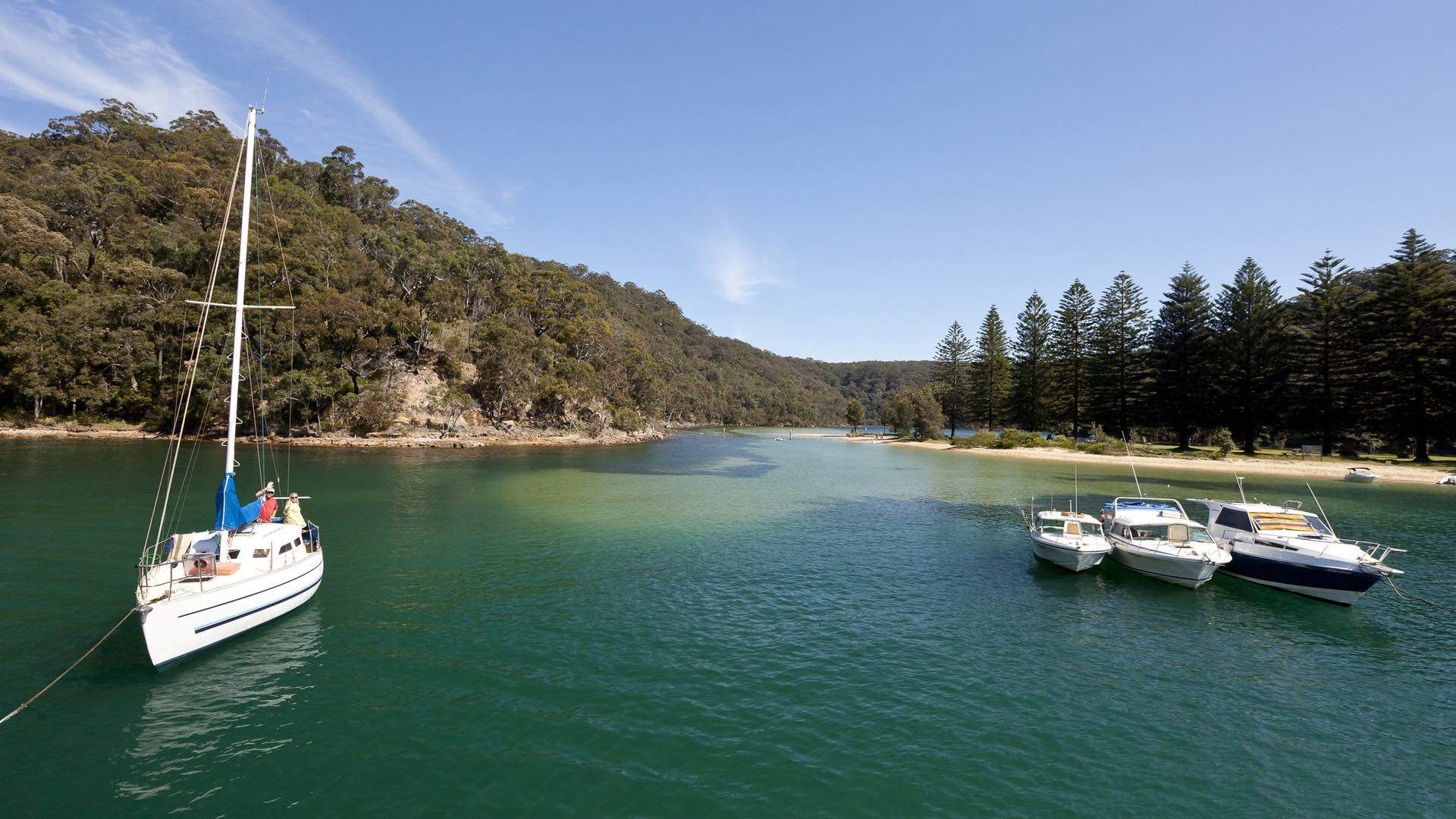
Destination NSW
THE BASIN, KU-RING-GAI
This escapade takes you into new territory. Safe within the shelter of Pittwater, you'll discover the alternative universe created by seagrass beds. The star attraction is sea horses, but you'll also cross paths with starfish, cuttlefish, bream, leather jackets and, during the warmer months, tropical species. If you want a helping hand, book a tour with Eco Treasures. To make a weekend of it, take your tent and stay overnight in The Basin campground. The Basin is only accessible by water (or via a 2.8-kilometre track from West Head Road car park) — catch a ferry from Palm Beach.

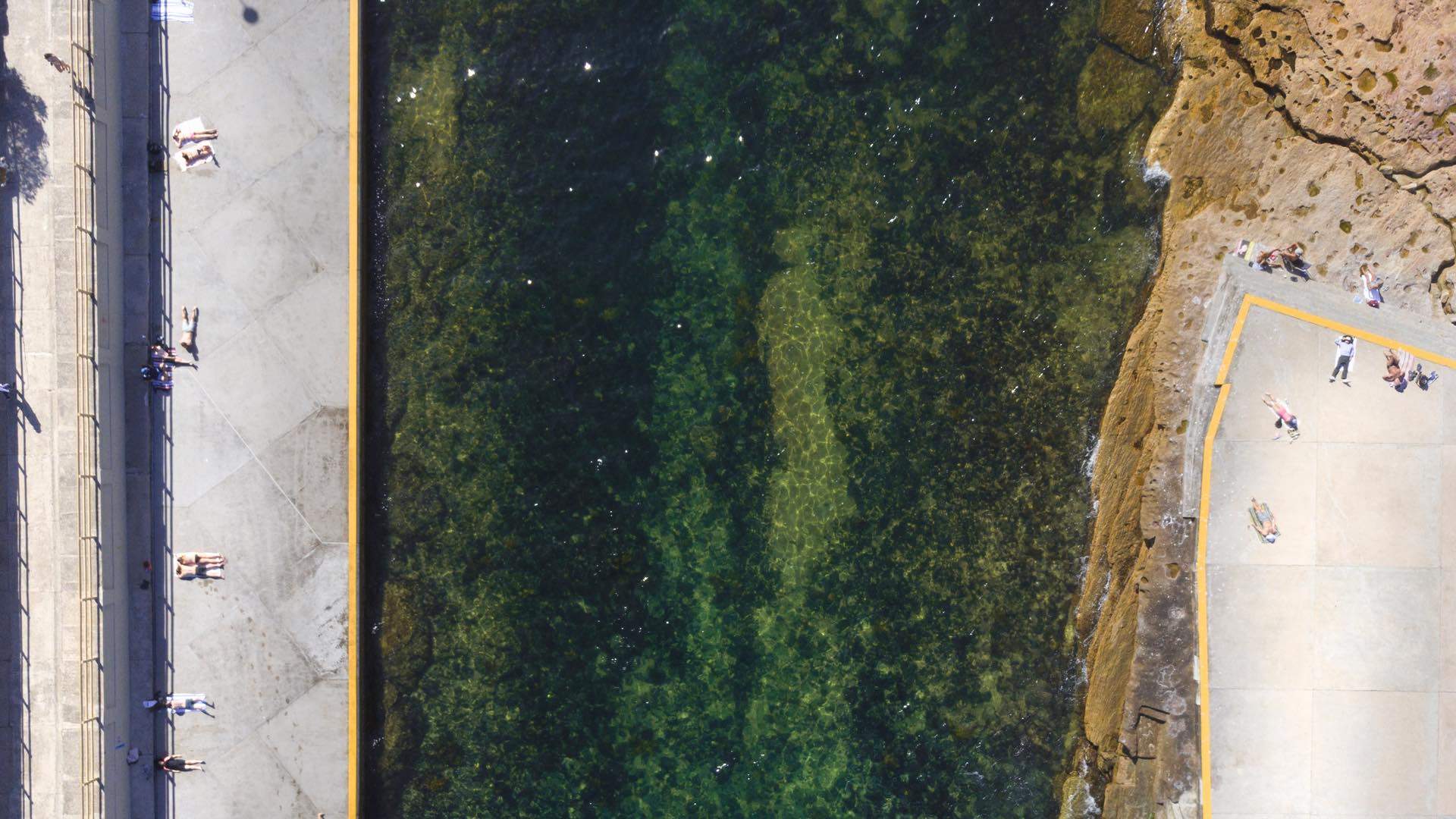
Paros Huckstepp
CLOVELLY
Like Little Bay (below), Clovelly is a safe, reassuring place to start for inexperienced snorkellers. Unless a storm is brewing at sea, the waters are tranquil and it's easy to get in and out via concrete steps. The most renowned underwater resident(s) is Bluey, a 1.2-metre long blue groper, who was allegedly murdered in 2002 and 2005, but keeps making mysterious returns. The entire Bronte-Coogee coastline is an aquatic reserve, so, in addition to Bluey (and his offspring), there's a wealth of marine life. By the way, killing a groper — New South Wales's official fish — can provoke a fine of up to $22,000.

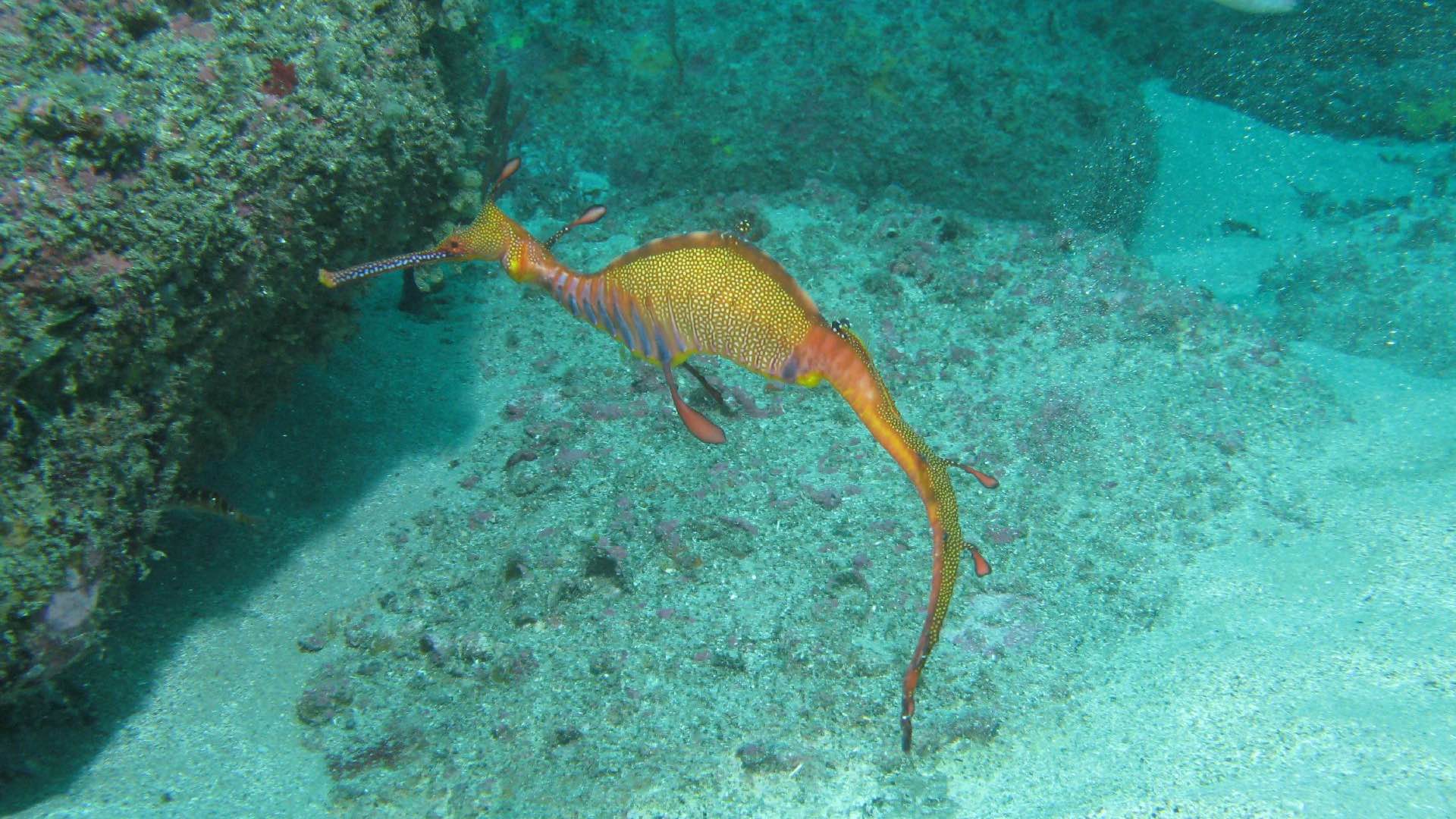
Taso Viglas via Flickr
KURNELL
Famous for being the Captain Cook's 1770 landing space, Kurnell is also where you'll find one of the city's busiest underwater communities. For an easy entry point, try Silver Beach, from where you can swim east towards Kamay Botany Bay National Park, passing Cook's obelisk on the way. Keep your eyes peeled for giant cuttlefish, moray eels, sea horses, Port Jacksons and firetruck red weedy sea dragons, decorated with bright blue stripes and canary yellow spots. Fur seals make occasional visits, too.

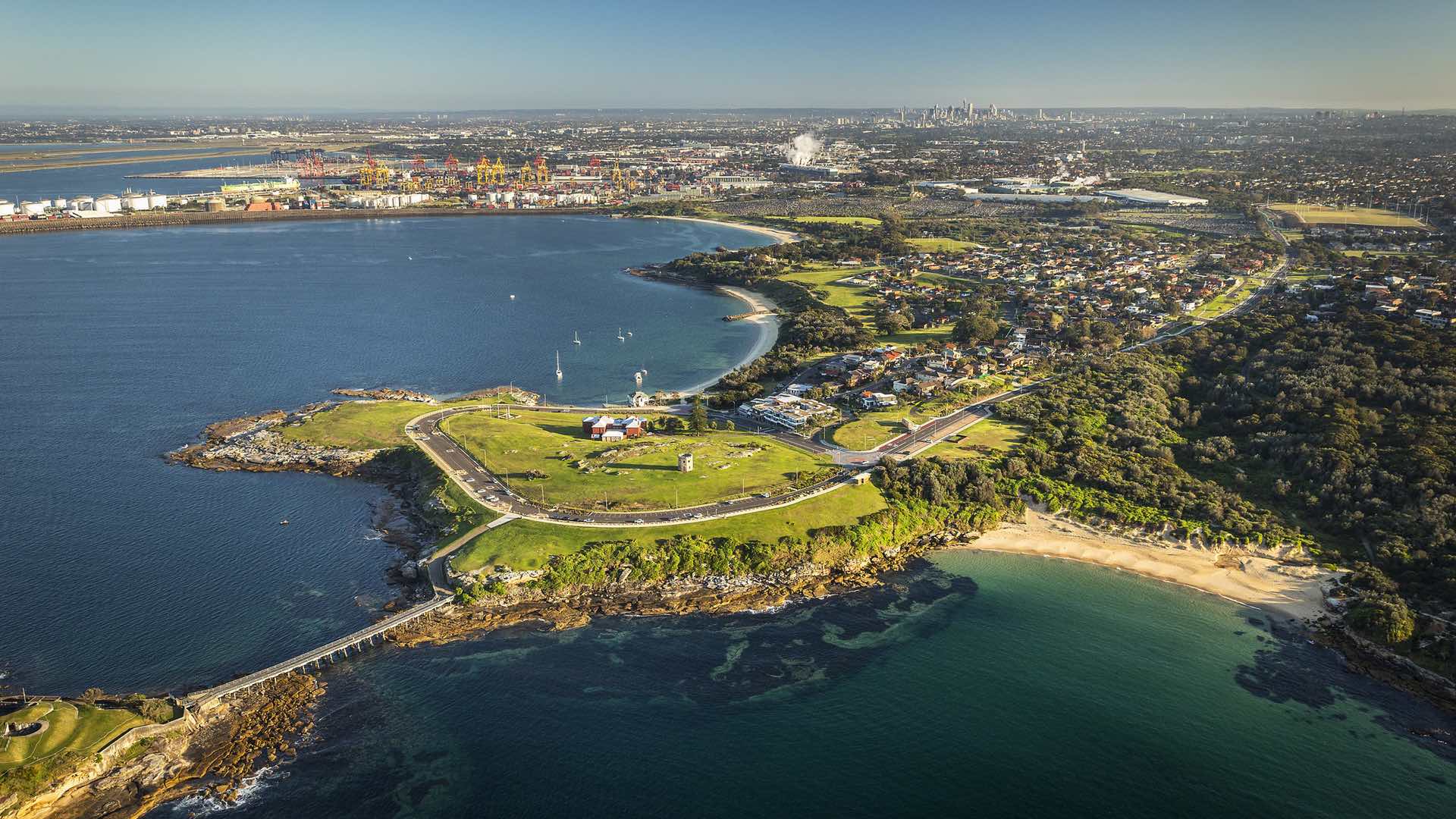
Destination NSW
BARE ISLAND
Just north of Kurnell, across the mouth of Botany Bay, lies Bare Island. Arrive on a weekend and you'll be sharing with lots of scuba divers; it's one of the most popular diving sites in not only Sydney but also New South Wales. If the island looks familiar despite your having not visited before, that's because you saw it in Mission Impossible II (remember the villain's lair?). The western side has good visibility and vibrant sponge gardens filled with life, including red Indian fish and gurnards, while the eastern coast is hugged by a rocky reef. A footbridge connects the island to the mainland.

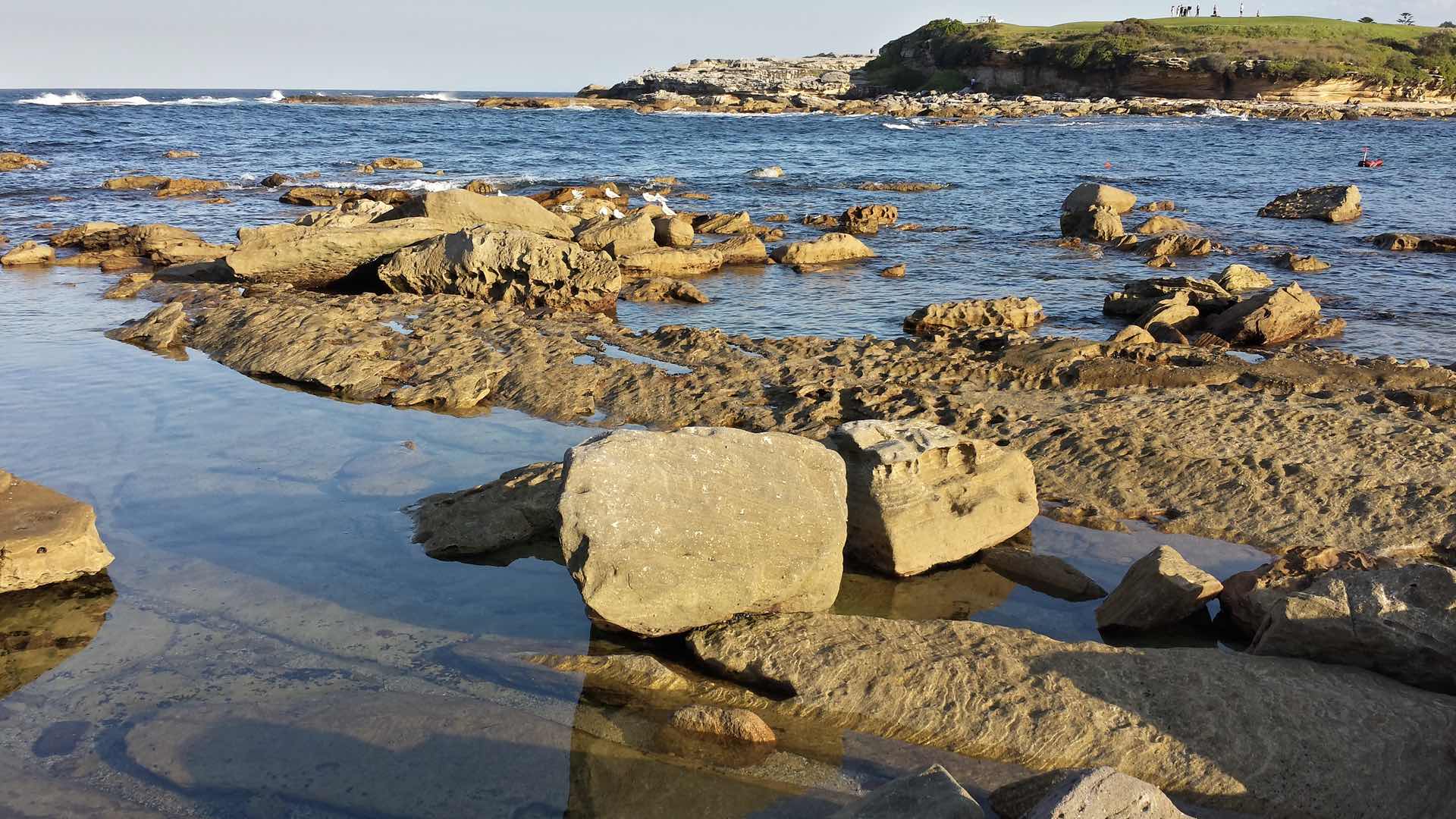
TotyVox via Wikimedia Commons
LITTLE BAY
For snorkelling newbies, Little Bay is a treat. Rocky headlands provide excellent protection from the behemoth Pacific, so the water is almost always calm and clear. Shy, delicate creatures thrive here, from sea anemones and black urchins to squid and tiny fish, travelling in large, brilliant schools. The beach has toilet and change rooms about half way down the steep timber staircase that leads to the beach.

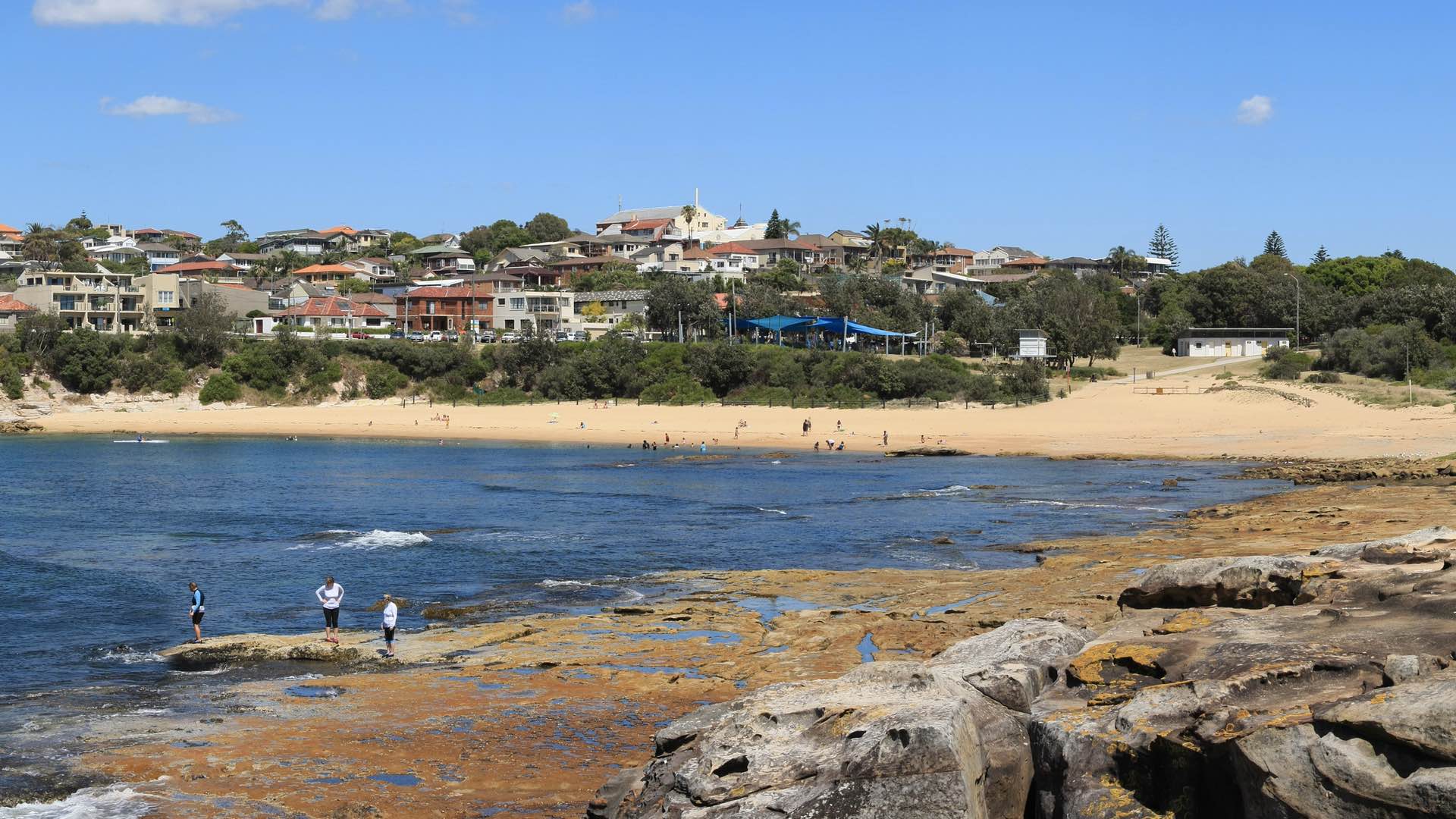
Adam JWC via Wikimedia Commons
MALABAR BEACH
Just north of Little Bay is Malabar Beach, which is home to not one but two shipwrecks. In 1931, the MV Malabar was travelling to Sydney from Singapore when it smashed into the headland. Everyone on board survived, but the ship (or bits of it, at least) are still in the sea. As are parts of the HMAS Goolgwai, which hit rocks and was wrecked here 24 years later in 1955. It's a hit with divers, and, when visibility's good, snorkellers can check them out, too. Meanwhile, an abundance of octopuses, sting rays and assorted fish will keep you company.

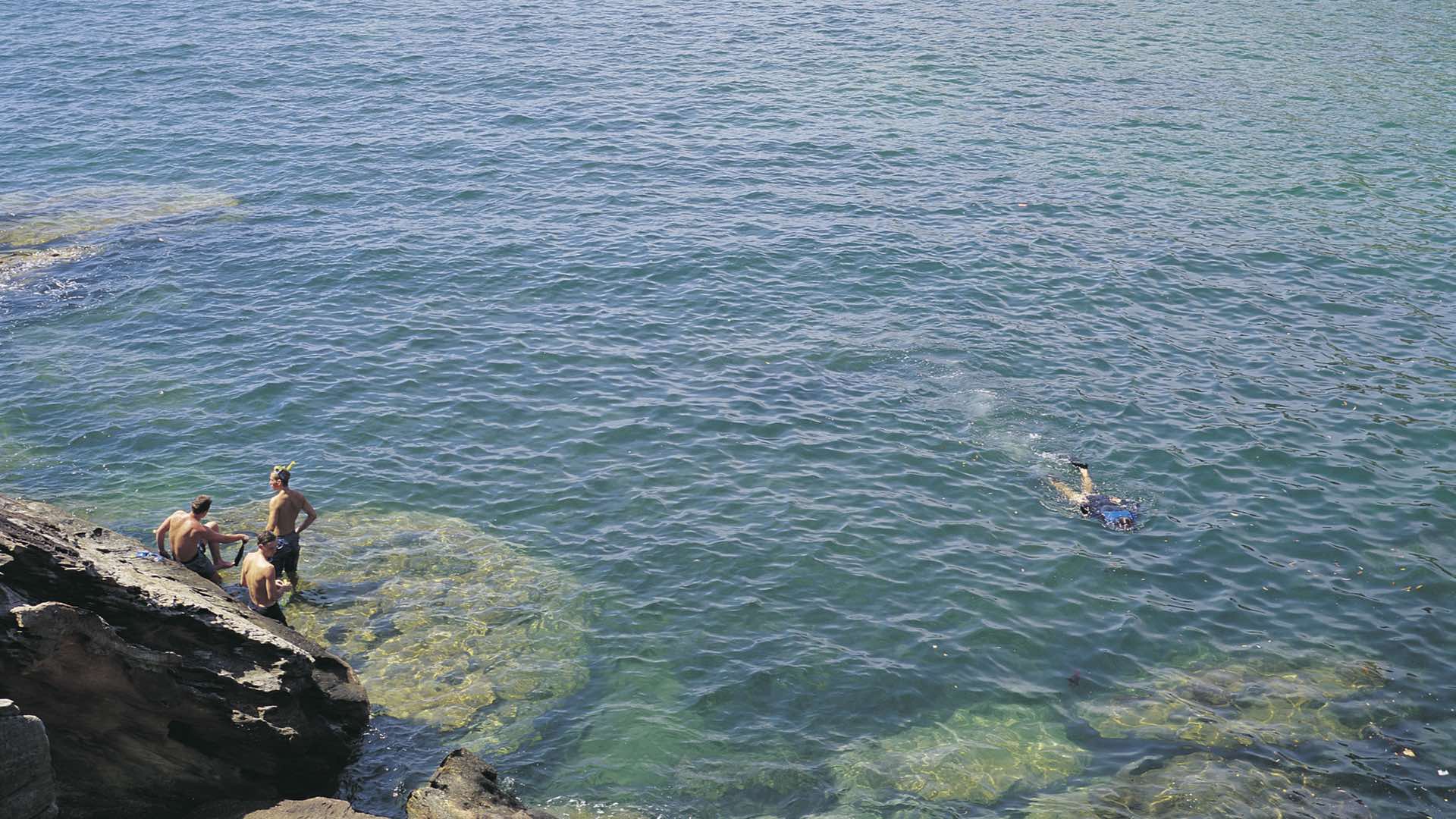
Destination NSW
GORDONS BAY
Hidden between Clovelly and Coogee Beaches, Gordons Bay is one of the eastern suburbs' prettiest spots. And it's the only snorkelling destination on this list with a dedicated underwater nature trail. Like the MV Malabar wreck, it's gold for divers, but, thanks to the bay's incredibly clear waters, snorkellers can also enjoy it on most days. Simply follow the series of sunken drums, linked by chains, each of which gives you info about local submarine dwellers, from starfish, sponges, urchins and anemones to cuttlefish, spotted goatfish and garfish.

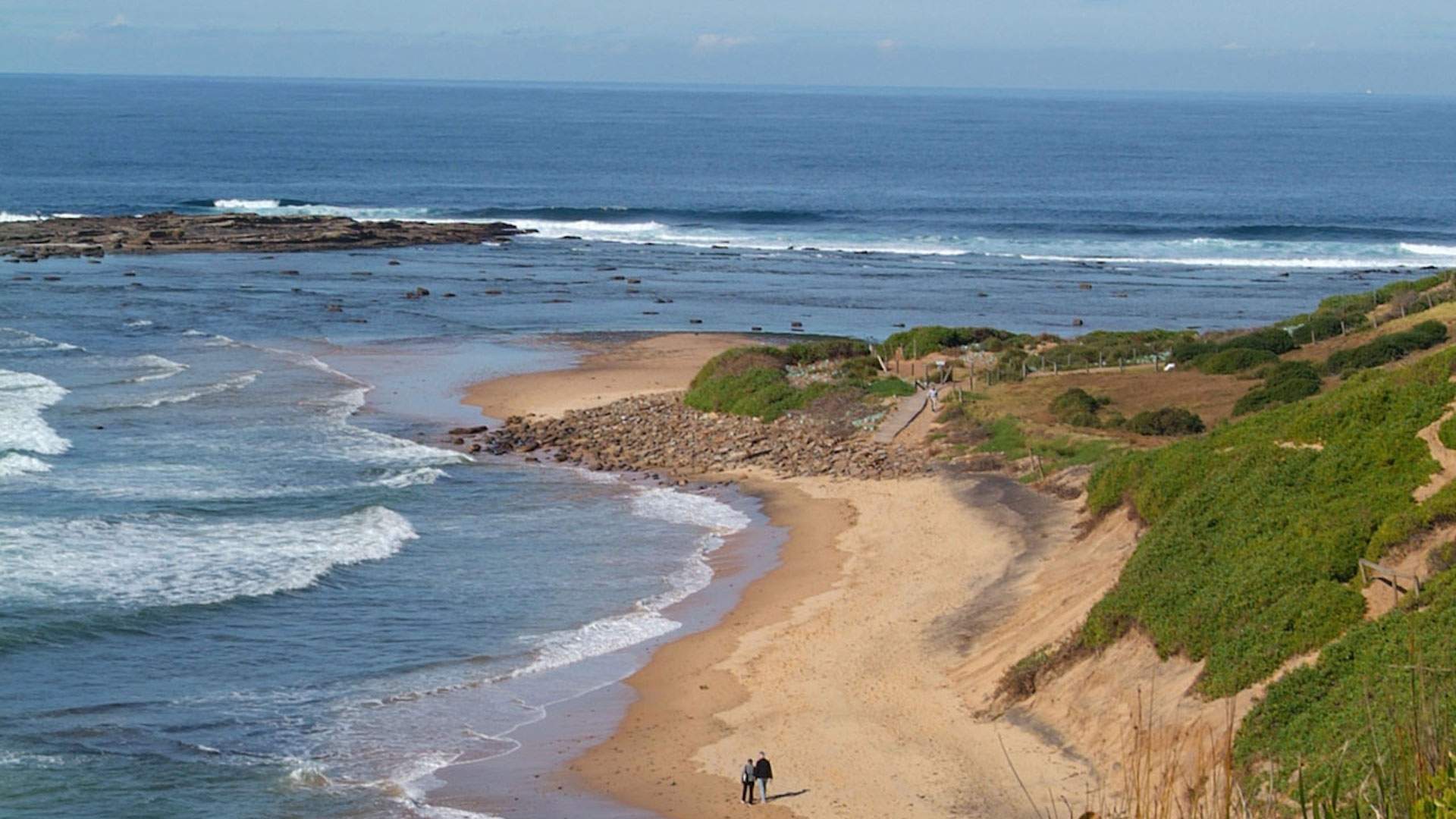
FISHERMANS BEACH, LONG REEF
This one's inside yet another aquatic reserve: Long Reef, which covers 76 hectares between Collaroy's rock pools and the Long Reef SLSC. Most of it features rocky shores and wild surf, but lovely, sandy, sheltered Fishermans Beach is an exception. Watch out for feather stars, sea stars, heart urchins and sea slugs (also known by the more elegant name nudibranchs).

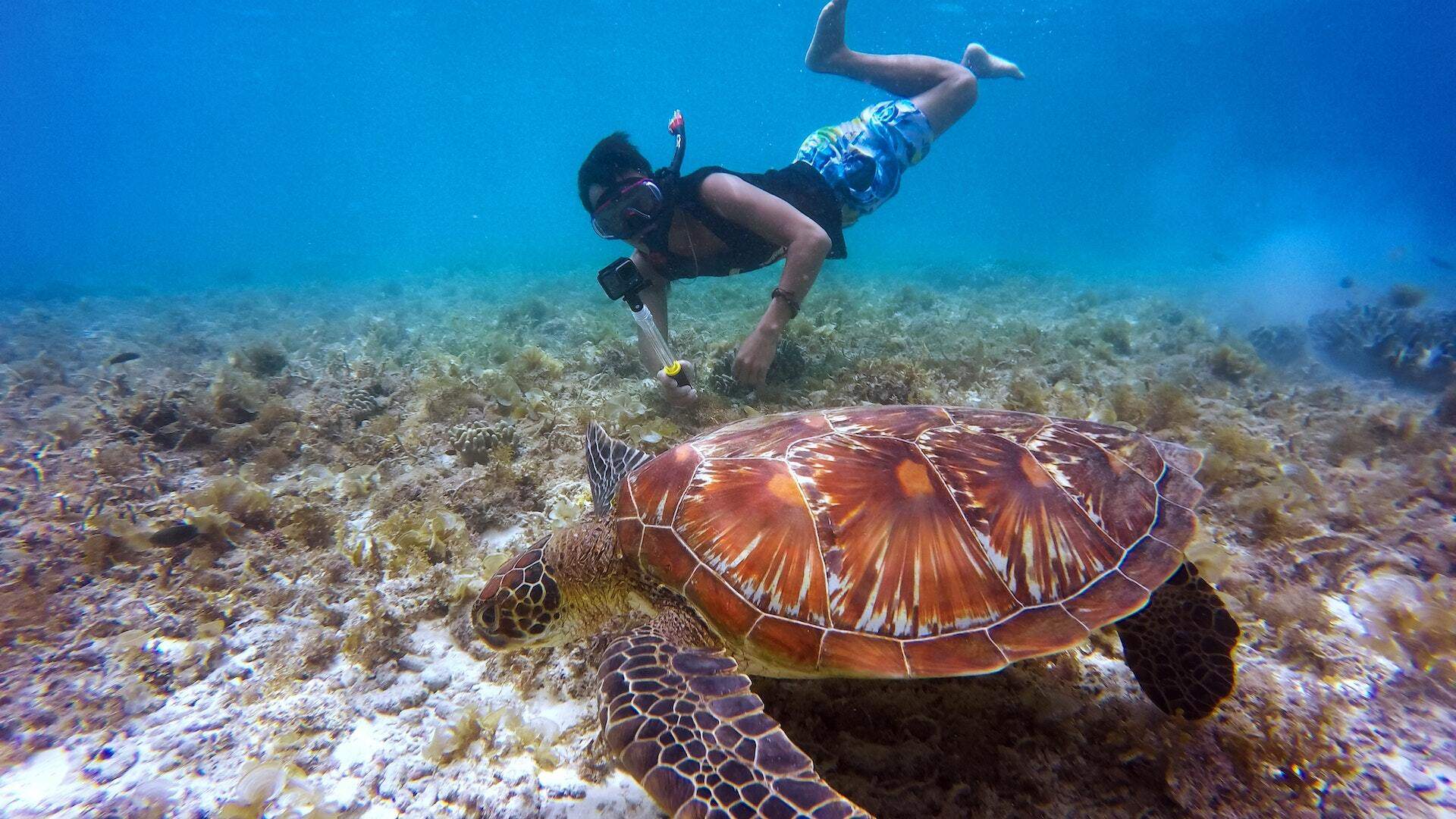
OAK PARK
Oak Park is one of Sydney's largest marine sites with tons of diverse marine life to ogle in your goggles. It's also a perfect spot to start your journey if you're a bit green — you can just start in the tidal pools to warm up, then move into the sea. Divers say seahorses and turtles are frequently spotted here. And, if you've been around the underwater block a few times, Oak Park is phenomenal for scuba diving, too.

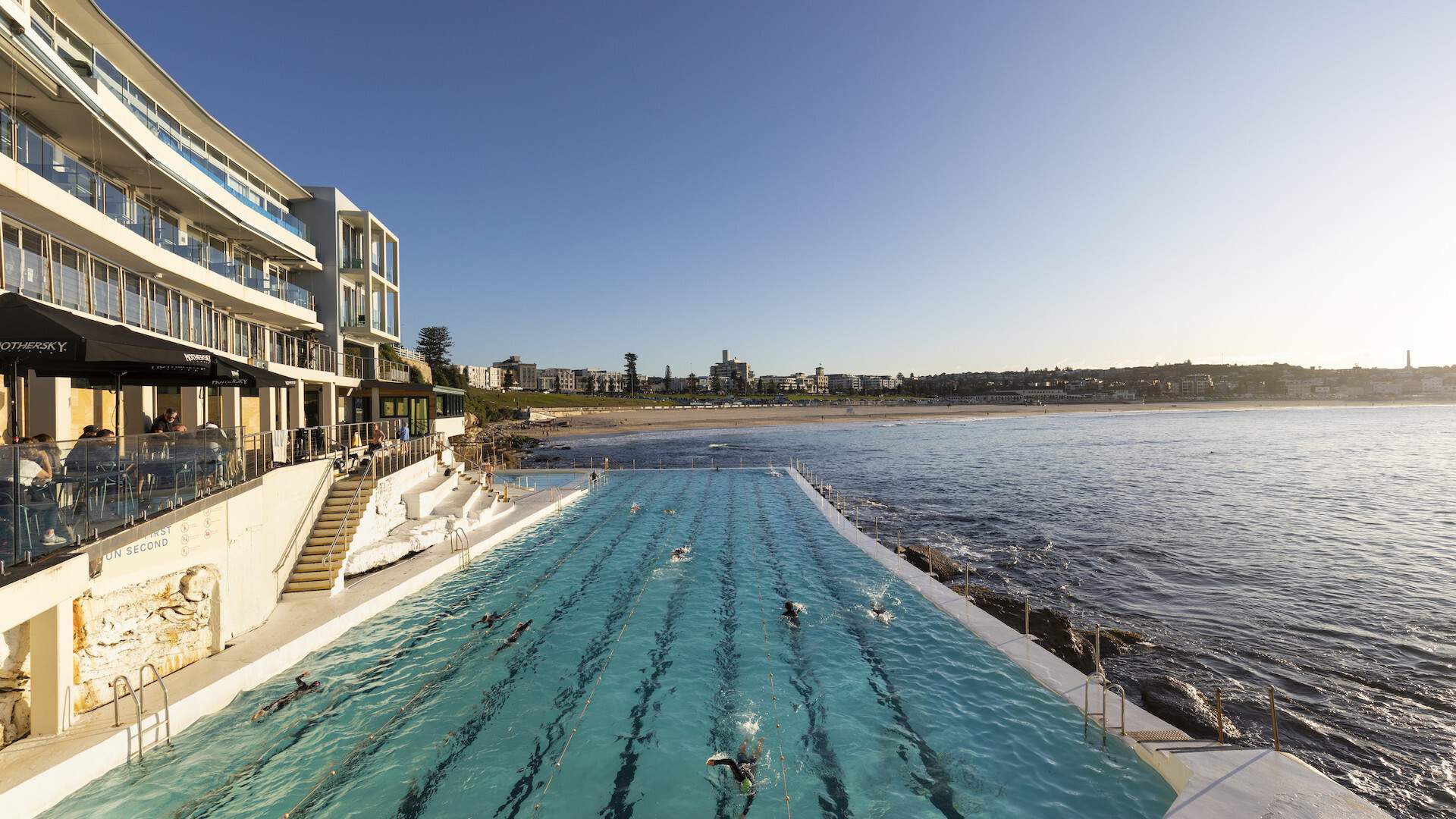
SOUTH BONDI
Ah, Bondi. Australia's most famous beach gets an honourable mention for being its iconic self — and because it has an aptly named spot on its south end: Flat Rock. Flat Rock is ideal for a wondrous day strapped into flippers. Though be careful, the sea must be fairly calm to snorkel here. You can check to see if it's diveable from Wilga Street, which is the best way to get down to the snorkel spot. And make sure you look for slight south-easterly swells, otherwise you want it almost dead calm. If not, you'll want to head somewhere else for your snorkeling adventure.

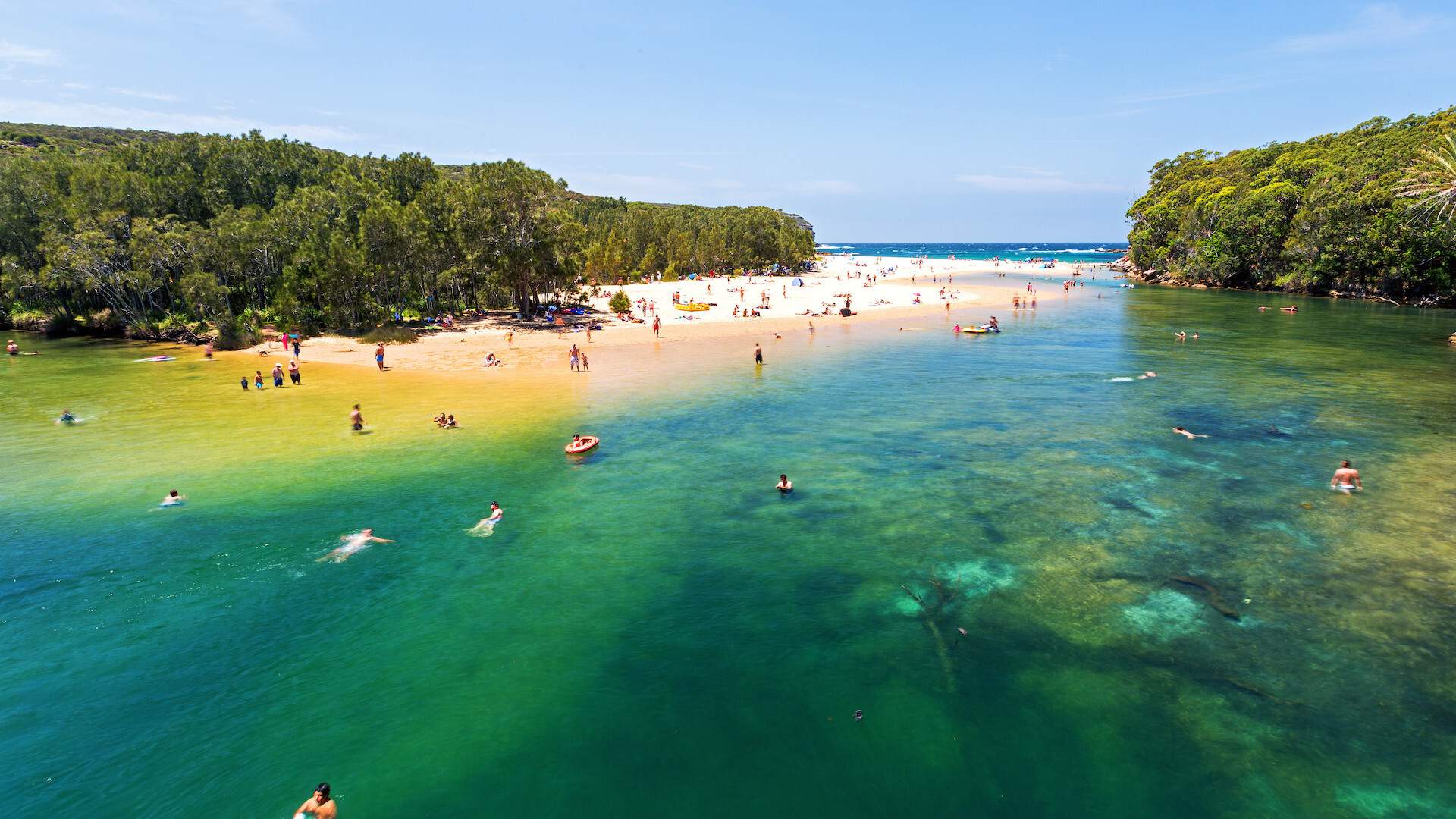
WATTAMOLLA BEACH
Wattamolla Beach is like something from your most picturesque, lagoon swimming, bushwalking, beach picnicking dreams. If the emerald-clear water isn't enough to get you jumping in the car and driving an hour south from Sydney, then the Royal National Park it lies in will. The water at this beach is so incredibly calm, it's a family favourite for snorkelling and liloing.
